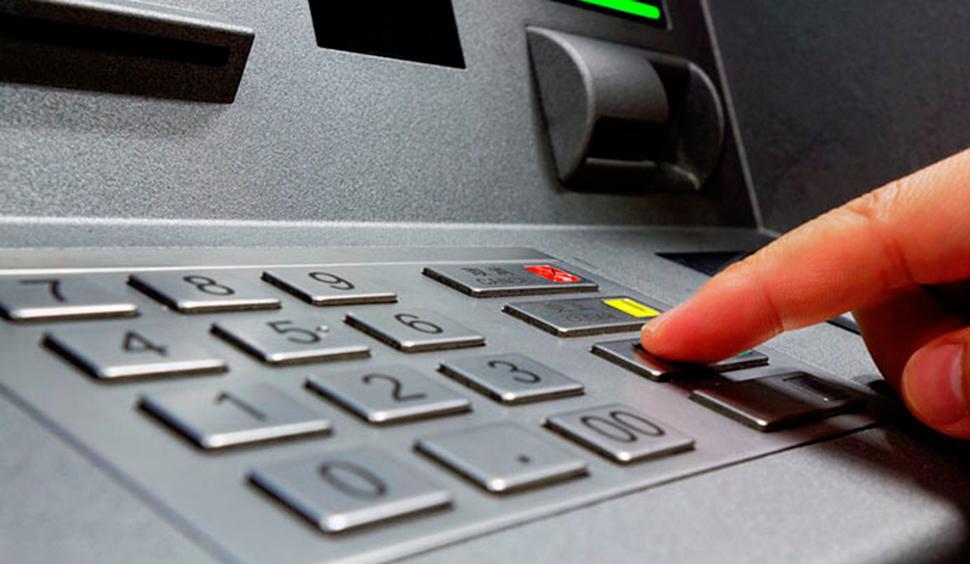Planning to take a trip abroad soon? Even if travel expenses are already covered, you’ll need to start thinking about how you’re going to pay for incidentals while you’re there. If you intend to use a credit card, you should learn about foreign transaction fees and how they impact your wallet.

What are foreign transaction fees?
The majority of purchases made with retailers outside the United States are subject to foreign transaction fees. So, if you’re planning to use your credit cards abroad, you should expect to see them on your statement with each transaction unless your credit card issuer covers the cost.
Keep in mind that foreign transaction fees may apply to any withdrawals (or cash advances) made from your credit cards when using an international ATM.
Online purchases with non-U.S. retailers may also incur foreign transaction fees if they are processed through a foreign bank.
Check out our list of the 10 best banks with no foreign transaction fees.
How are foreign transaction fees calculated?
Foreign transaction fees vary, but in most instances, you will be charged 3% per transaction. This may not seem like much, but if you spend an extensive amount of time abroad, these fees can add up rather quickly. A few scenarios to illustrate, assuming the foreign transaction fee is the standard 3%:
| TOTAL PURCHASES | FOREIGN TRANSACTION FEES |
|---|---|
| $3,000 | $90 |
| $4,500 | $135 |
| $6,000 | $180 |
And if you don’t pay the balance in full before the grace period ends, they will roll the foreign transaction fees into what you already owe. Unfortunately, this also means interest will accrue.
To locate the applicable foreign transaction fee for your credit card, refer to the “Fees” section of your cardholder agreement. If you’re unable to find or access this information, contact the credit card issuer for further assistance.
Currency Conversion Fees
When you’re using your credit card abroad or online with international retailers, the form of payment is the US dollar. So, it must be converted into the local currency for the payment to be processed.
The entire conversion process takes place electronically. However, there’s a cost associated with the transaction, and it is passed on to the user in the form of a currency conversion fee. You won’t see it as a separate line item on your credit card statement, as it is rolled into the final purchase price of the product or service.
Wondering how much these international transaction fees are? Credit card issuers don’t always clearly specify an amount in the cardholder agreement, so you’ll need to call the customer service department to inquire.
You can also inform the cashier at the point of sale that you’d like to pay the fee. They can then roll it into your total using the exchange rate provided by their Dynamic Currency Conversion (DCC) service provider.
But, you may be better off paying the foreign exchange fee once it appears on your statement. This is because credit card issuers tend to charge less, and foreign merchants make additional income when you use the DCC, notes Forbes.
How much are foreign transaction fees?
The amount of foreign transaction fees varies depending on the credit card issuer and type of card. Some cards have no foreign transaction fees, while others may charge up to 3% for each transaction.
Effect on Credit Card Rewards
If you currently use cash back or travel rewards credit cards, the costs incurred from these fees will not be counted towards your total purchases. So, if you receive 3% cashback on all foreign transactions, but are assessed a foreign transaction fee for the same amount, you wouldn’t come out ahead.
But let’s say you’re earning a higher cash back percentage of 5%, and you’re hoping to rack up points by using your credit cards on all purchases while abroad. If the foreign transaction fee and currency conversion fee are both 3%, you wouldn’t want to use a credit card as it would be a loss for you.
What if I use my debit card abroad?
Some debit cards, particularly those from a major payment processor, like Visa and MasterCard, are also accompanied by foreign transaction fees. They range from 1 to 3%, plus the cost of any applicable foreign currency transaction fees.
Should you decide to use your debit card abroad for withdrawing cash, you’ll also be assessed a foreign transaction fee and an out-of-network withdrawal fee. They are usually between $1 and $5 per transaction. Balance inquiry fees may also apply.
If you’d prefer to use your debit card when traveling abroad, it’s best to contact your bank before departure to learn more about their foreign transaction fee schedule. You may also want to search for financial institutions that waive these fees for customers. This list is a good place to start.
Will a foreign transaction fee be refunded if I return an item?
It depends on your card issuer. If you return an item you either bought while out of the country or online from a retailer, it’s up to the bank to determine if you’ll receive a refund for any accompanying fees.
But keep in mind that they’ll first have to calculate the value of the item to determine the proper amount to refund for currency conversion fees (if applicable).
How to Avoid Foreign Transaction Fees
You always have the option to travel with cash and exchange it for local currency on arrival. Most airports and banks also offer currency exchange services. But if you choose any of these options, you have to keep the cost of foreign currency exchange in mind.
Choosing a credit card that doesn’t charge foreign transaction fees is perhaps the best way to avoid them. (In most instances, these credit card issuers will also cover the currency conversion fee for you).
Start by browsing cards offered by Capital One and Discover, as none of their credit cards charge foreign transaction fees.
Popular Credit Cards With No Foreign Transaction Fees
Here are some other travel rewards credit cards that don’t charge foreign transaction fees:
- American Express Platinum Card
- Bank of America Premium Rewards Card
- Barclaycard Arrival Plus World Elite Mastercard
- Capital One Venture Rewards Credit Card
- Chase Ink Business Preferred Credit Card
- Chase Sapphire Reserve
- Chase Sapphire Preferred Card
- Citi Premier Card
- Southwest Rapid Rewards Priority Card
Here are some other great banking options for international travel when you’re looking to avoid foreign transaction fees.
Popular Debit Cards With No Foreign Transaction Fees
Here are some popular checking accounts and debit cards that don’t charge foreign transaction fees:
- Bank of America Advantage Banking Debit Card
- Capital One 360 Checking Visa Debit Card
- Chase Freedom Unlimited
- Chime Debit Card
- Citi Double Cash Card
- Discover it Cash Back
- Fidelity Rewards Visa Signature Card
- Schwab Bank Invest First Visa Debit Card
- TD Connect Card
- U.S. Bank FlexPerks Select+ American Express Card
- Wells Fargo Debit Card
Frequently Asked Questions
Why do banks charge foreign transaction fees?
Banks charge foreign transaction fees to cover the cost of currency conversion and international processing, as well as to offset the risks associated with international transactions. Banks may also use the fees to offset any losses that may be incurred from fluctuations in exchange rates.
Do debit cards have foreign transaction fees?
Yes, debit cards can have foreign transaction fees. The exact fee amount and structure varies depending on the issuing bank, but they usually range from 1-3% of the transaction amount.
What types of purchases are subject to a foreign transaction fee?
Any purchase made in a foreign currency, or with a foreign-based merchant, will be subject to a foreign transaction fee.
Do foreign transaction fees apply online?
Yes, foreign transaction fees can apply to online purchases. Many credit cards charge a foreign transaction fee of around 3% when you make purchases in a currency other than U.S. dollars. Check with your card issuer to determine if foreign transaction fees are applicable to your credit card.
Bottom Line
Traveling abroad with credit cards may be convenient. However, it may be worth finding the right one if your credit cards come with currency conversion and foreign transaction fees. To determine which option is most cost-effective, weigh foreign fees against currency exchange services.




